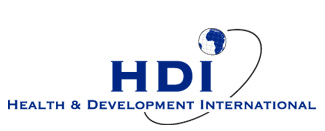Niger has started the first-ever Initiative to Prevent Women from Bleeding to Death at Childbirth, to protect women in villages and towns nationwide. And it looks like the Ministry of Health (MOH) is in fact succeeding in its “ridiculously ambitious” aim, to halve PPH mortality within two years. Not magic or nonsense, but science and real numbers.
Niger can succeed because they use proven, highly effective, low-cost, heat-stable, rather new technologies, combined in an innovative way with a strategically chosen set of traditional public health tools more typically applied in disease eradication efforts. Niger designed its PPH Initiative with technical and financial support from HDI.
The problem and its solution
Roughly 10% of women the world over bleed severely at childbirth if nothing is done.
Prevention in a hot climate without reliable refrigeration uses misoprostol costing < $1 USD, immediately after birth. This reduces excessive bleeding incidence by over 70%.
3-Step Treatment is given to those who bleed too much anyway (>500 ml.), as is seen when a traditionally used cloth becomes soaked with blood. The 3-Step Treatment is:
- Give the woman a treatment-dose of misoprostol. If the bleeding doesn’t stop within 25 minutes,
- Place a Condom Tamponade – a condom tied onto a catheter, inserted into the bleeding uterus, and inflate with 300-500 ml of water. If that does not stop the bleeding within 6-12 minutes,
- Apply a Non-inflatable Anti-Shock Garment (NASG) and get her to surgery in a Definitive Treatment Center, even if far away. Antibiotics in each Tamponade Kit protect against infection because we insert clean but unsterile equipment into her uterus.
At 3rd Trimester prenatal consultation each woman gets a prevention dose of misoprostol with instructions on when and how to use it, in case she does not make it to the health center in time to give birth there. She is encouraged to give birth in a health setting and bring the dose with her. 3-Step Treatment is by health workers given training and supplies.
Niger is the first country in the world to take such ambitious steps aiming to halve PPH mortality nationwide. Because it is achieving results, their effort needs to be sustained.
This cost about $700,000 to put in place nationwide in 2014, including the baseline survey. We estimate CASH benefits of ≈$9.9 million for the country’s 17.8 million people to be 12 times greater than the annual running cost. This includes benefits from deaths averted and loss of income from severe anemia among PPH survivors, using half the WHO Burden of Diseases estimate of 6 months loss of income as the cost of severe anemia cases. We used $1/day as the estimated income for the population of Niger.
What counts most is of course people’s lives, the women themselves and children who can have their mother survive to be with them as they grow up! Averted loss is also important
Impact in 252 643 births, reports from part of all 42 districts (Thru Dec ’17, provisional)
PPH Incidence: 2.19% (4 937 women) vs Expected 18% with PPH and 10.5% >1000 ml
PPH Mortality: 13.46% of 1753 deaths vs Expected 25% – 35% of deaths (29% in Niger)
Other countries are beginning to “Look to Niger” based on their success. HDI very much needs support to help Niger solidify their results and help others replicate the Niger Approach elsewhere. One state in Nigeria has already started their own Initiative, and professionals in other countries with high levels of PPH mortality wish to do the same. Please get in touch if you would like to help, and if you would like more information for whatever reason.
